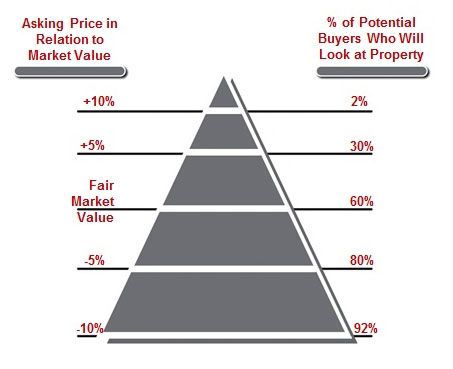Competitive Pricing

How Price Affects Buyer Interest
- Well-priced properties generate immediate interest among buyers and agents.
- When you price your home above its market value, fewer buyers will show interest in it. Leaving bargaining room is not as powerful a negotiating tool as bringing in a greater number of truly motivated buyers by setting a competitive price, especially in a challenging market.
- When you price your home below market value, you increase the number of interested buyers.
Properties that linger on the market generally end up selling for less than market value. This is because buyers increase their scrutiny of price and condition when a property has not sold promptly, assuming that it’s either overpriced or has a problem.
The Pitfalls of Overpricing
When a home is priced too high for the market, it generates a series of predictable - and often unfortunate - results.
 The property loses momentum in the market. The best offers are typically made within the first few weeks following the initial listing.
The property loses momentum in the market. The best offers are typically made within the first few weeks following the initial listing.
- The home attracts “lookers” and curiosity seekers rather than serious purchasers.
- There are fewer showings.
- Comparable properties look more attractive—and sell more quickly.
- Buyers suspect that the owner isn’t motivated to sell.
- If the home fails to appraise at the higher price, willing buyers may not be able to obtain the necessary financing.
The Consequences of Overpricing on Selling Time and Price
Buyers and agents tend to lose interest in properties that are priced too high. To recapture that interest, sellers must often drop their asking price below that of the competition.